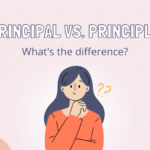Words help us share thoughts and feelings. Two words, “affective” and “effective,” may sound alike, but they mean different things. Both are important for communication, and understanding their differences is key. In this article, we’ll see the differences between affective and effective, exploring their definitions, usage, and providing examples to improve our understanding.
What is Affective?
Affective, primarily an adjective, pertains to emotions, feelings, or moods. It is associated with the emotional aspect of human experience. When we use the term “affective,” we are referring to something that influences or is influenced by emotions.
| Aspect | Affective |
|---|---|
| Definition | Relating to emotions or feelings. |
| Usage | Describing the emotional impact or expression. |
| Examples | – Affective communication requires empathy. |
| – The movie had a profound affective impact on the audience. | |
| – The teacher’s affective approach created a positive learning environment. |
What is Effective?
Effective, on the other hand, is an adjective that denotes the capability to produce the desired result or outcome. It focuses on the efficiency and success of an action, method, or process. When we use the term “effective,” we are concerned with the practicality and achievement of a specific goal.
| Aspect | Effective |
|---|---|
| Definition | Producing the desired result or outcome. |
| Usage | Describing the efficiency or success of an action. |
| Examples | – The new marketing strategy proved to be highly effective. |
| – An effective leader motivates and guides the team towards common goals. | |
| – Using this software is an effective way to streamline the workflow. |
What are the Differences Between Affective and Effective?
Focus:
- Affective: Emotion and feeling.
- Effective: Outcome and result.
Nature:
- Affective: Deals with the emotional or subjective aspect.
- Effective: Concerned with practicality and achieving objectives.
Examples:
- Affective: “Her affective speech touched the hearts of the audience.”
- Effective: “The fire extinguisher was an effective tool in controlling the blaze.”
Application in Communication:
- Affective: Used to evoke emotional responses in communication.
- Effective: Used to convey the success or impact of a message.
What is the Difference between Affective and Effective?
Affective pertains to emotions, dealing with the subjective, while effective focuses on achieving desired outcomes. Affective involves feelings, while effective emphasizes practical success. Both are primarily adjectives but can function as nouns or verbs in specific contexts.
Does Affective or Effective are used as Noun, Verb or Adjective?
Affective and Effective are primarily used as adjectives, but they can also function as nouns and verbs in certain contexts.
Adjective Usage:
Affective: Describes something related to emotions or feelings.
- Example: “The affective impact of the painting was evident in the tearful eyes of the viewers.”
Effective: Describes something that produces the desired result or outcome.
- Example: “A well-planned strategy is crucial for an effective marketing campaign.”
Noun Usage:
Affective: Used less commonly as a noun, it refers to a subjective emotional experience.
- Example: “The therapist focused on the affective aspects of the patient’s well-being.”
Effective: As a noun, it refers to a person or thing that is effective.
- Example: “The new manager proved to be an effective in turning around the team’s performance.”
Verb Usage:
Affective: Rarely used as a verb in standard English.
- Example: “The music deeply affected her, bringing back nostalgic memories.”
Effective: Also less commonly used as a verb, it implies making something successful or operational.
- Example: “The team worked hard to effective the changes proposed in the project.”
Conclusion:
In conclusion, even though “affective” and “effective” sound alike, they mean different things. “Affective” is about feelings, while “effective” is about getting good results. Knowing when to use each is important for clear communication and success in messages, plans, and relationships.


